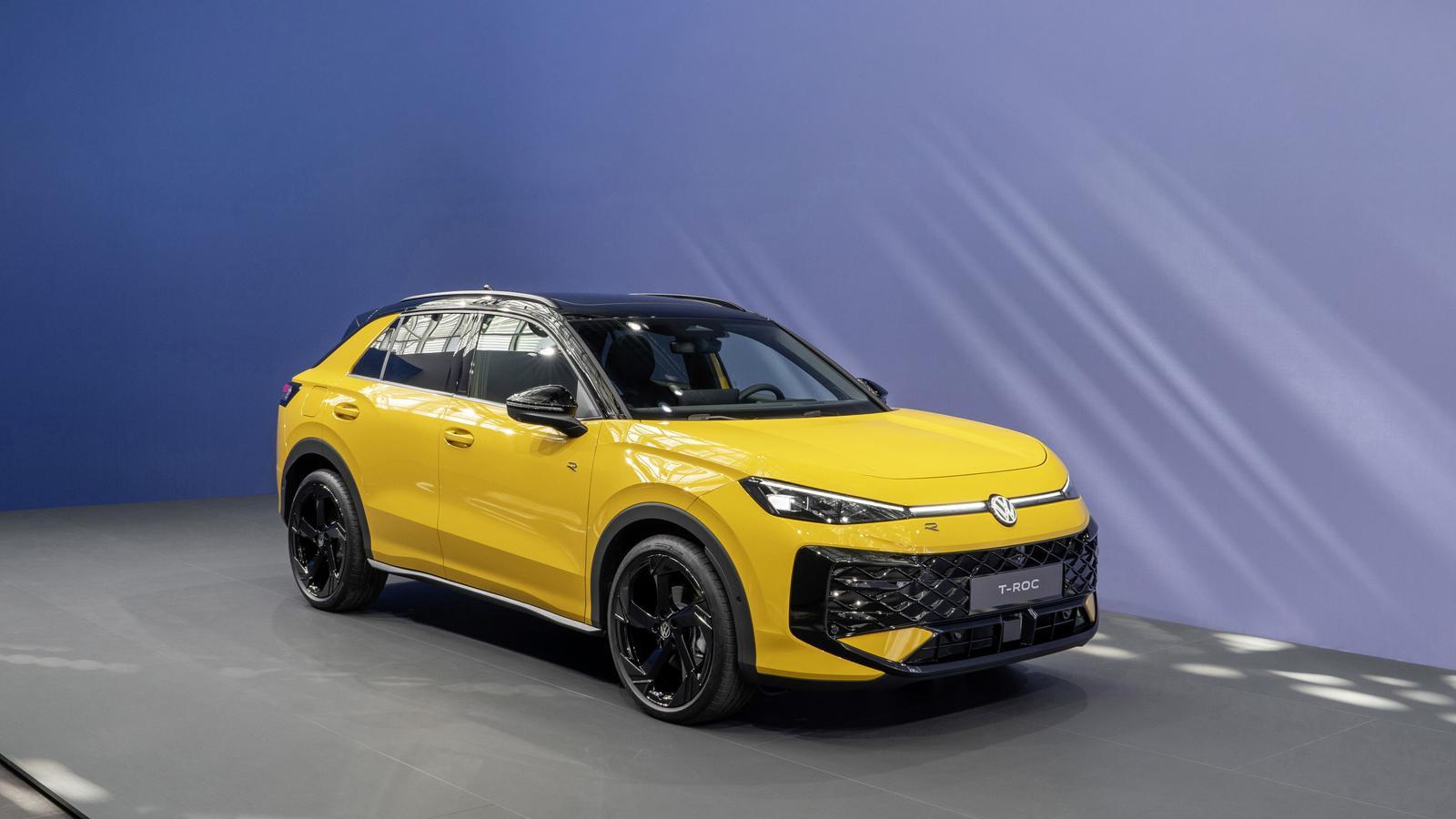Volkswagen changes paradigm with the new T-Roc
The Lower Saxony-based company presents the new generation of the T-Roc, which debuts conventional or self-charging hybrid engines for the first time.

The T-Roc is one of Volkswagen's most successful models and one of its greatest commercial assets in Europe. In fact, the T-Roc is the brand's second best-selling model in Europe, and in the Spanish market, this compact SUV has established itself as the Wolfsburg brand's sales leader for several years now. The Germans have only recently unveiled the new generation of the model, which debuts a new, modern, sober, and elegant aesthetic and new engine options. For the first time, it includes a conventional or self-charging hybrid version, meaning one that doesn't require a plug-in.
The new T-Roc is a significantly larger model than the first-generation model introduced in 2022, growing by more than twelve centimeters to reach 4.37 meters in length, 1.83 meters in width, and 1.56 meters in height. The T-Roc's trunk also grows to 465 liters, above the average of its rivals in the compact SUV segment. The new body, sharper and sleeker, is also more aerodynamic, influencing fuel economy and improving performance with a drag coefficient of 0.29, 10% better than its predecessor.
As for the interior, Volkswagen has opted for technological controls thanks to a fully digital 10-inch dashboard, a 14-inch central touchscreen, and the MIB4 multimedia system with voice command recognition and an AI assistant with ChatGPT. However, it's worth noting that Volkswagen retains several physical controls for key features such as the vehicle's temperature and audio volume, among others, many of which are integrated into the steering wheel. The Lower Saxony-based company has decided to listen to its customers' demands, who are opposed to the complete elimination of physical controls in vehicles.
For the first time, with a conventional hybrid engine
But the big news for the T-Roc is, without a doubt, the new 1.2 TSI EVO2 self-charging hybrid engine, with two power options of 136 and 170 hp. Until now, Volkswagen had never opted for conventional hybrid engines, a segment in which its main rivals from Toyota and, more recently, the French company Renault seem to have no rivals. Volkswagen has traditionally opted for TGI natural gas engines and plug-in hybrid or PHEV engines, but now it's backing down and offering a conventional hybrid or HEV version in response to the growing preference among European buyers.
Aside from this major new feature, the new T-Roc will also be available with a Mild Hybrid or mild-hybrid engine with a 1.5 TSI engine and power outputs of 115 or 150 hp, and a second option with a 2.0 TSI engine associated with the same Mild Hybrid system and a power output of 190 hp and a power output of 190 hp and a 190 hp system. All versions (conventional hybrid or mild-hybrid) are associated with a seven-speed DSG automatic transmission or a six-speed manual transmission, and for next year Volkswagen reserves the right to present the T-Roc R version, which should far exceed the 300 hp power barrier.
What's also unknown yet is the final price range for the new T-Roc. While the current generation is priced at around €26,800 for the base versions and up to €38,720 for the higher-end versions, we can say that the new model will maintain a similar price range, but slightly higher than the current one, and that the expected conventional hybrid or HEV version will cost around €29.
